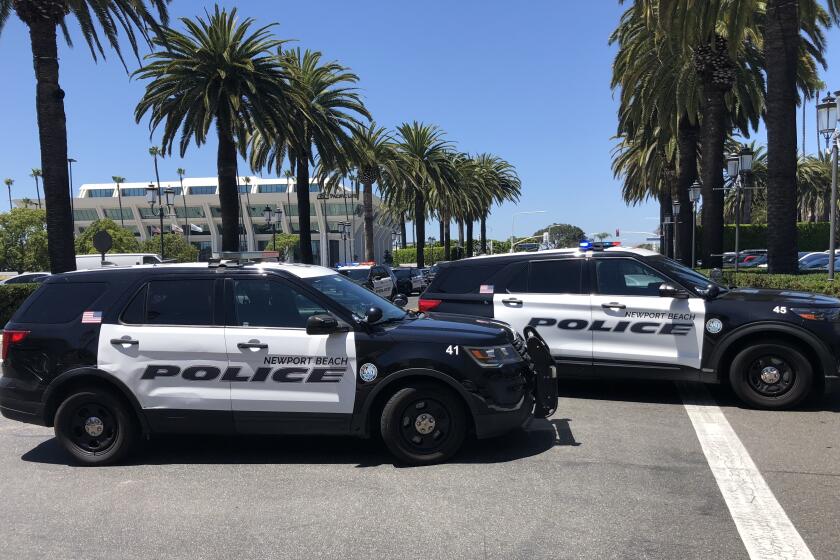Costa Mesa park lovers cry foul as mysterious bread drops pose risk for pond-dwelling birds
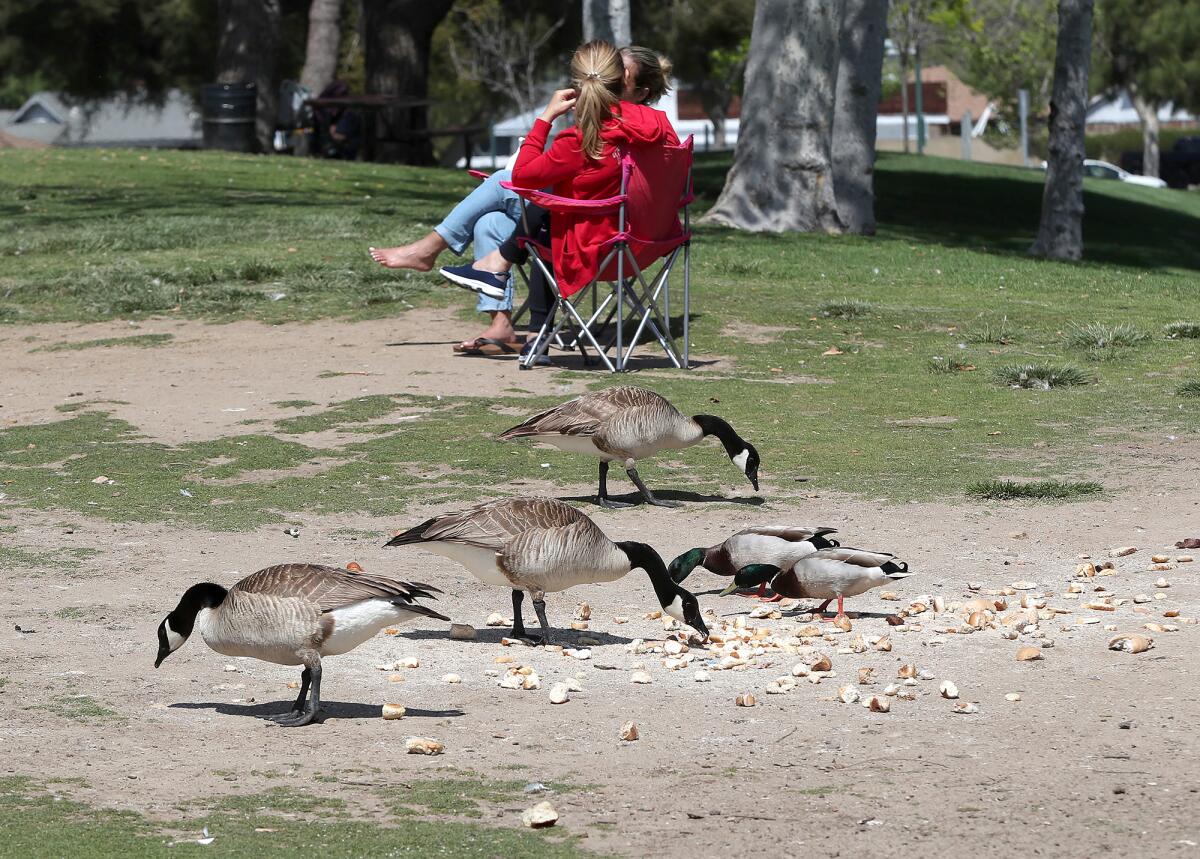
- Share via
Regular visitors of Costa Mesa’s TeWinkle Park are finding their feathers ruffled by apparent scofflaws, who continue to dump mass quantities of bread near a fishpond frequented by ducks, geese and other waterfowl despite prohibitions against it.
Longtime Costa Mesa resident Barry Friedland, who comes to the park to walk his dog, says it’s not uncommon for people to leave behind scraps of bread, thinking it helpful to the local wildlife, even though experts roundly discourage such feedings.
But the practice rose to the level of a problem in February 2019, when he and wife Jeannette were walking near the pond area and saw two huge piles of food unceremoniously dumped on the ground.
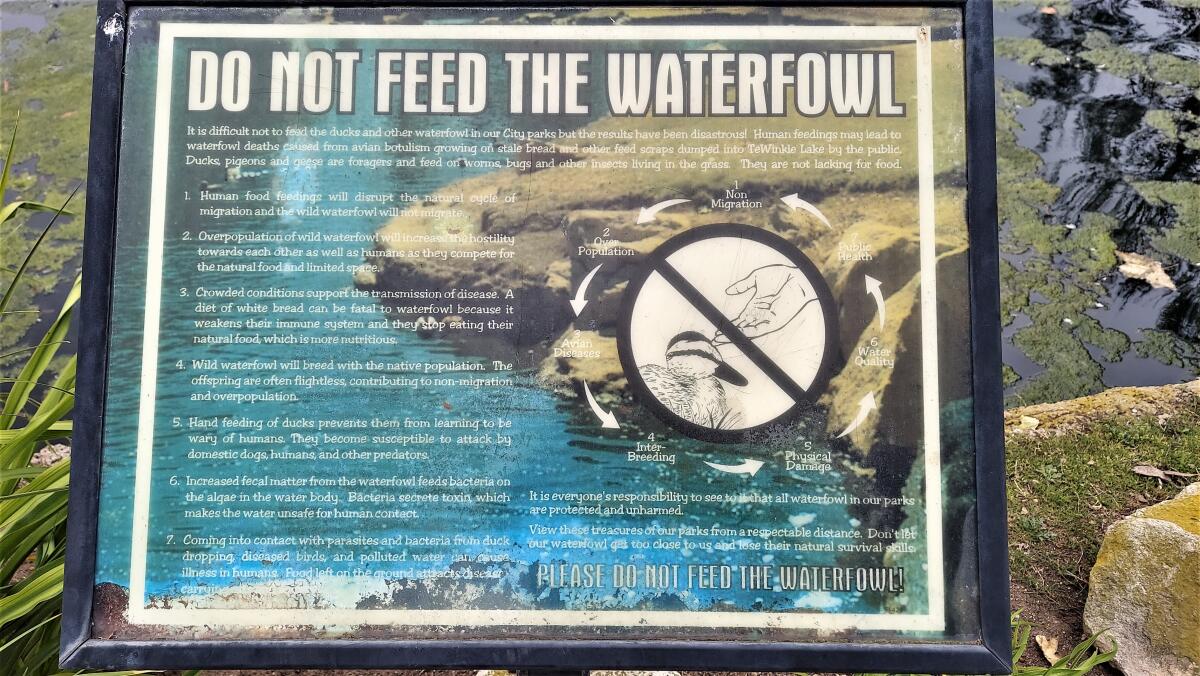
“There was a pile of garlic bread, fresh and ready to be eaten, and a huge pile of rice about 100 feet away,” he recalled Tuesday. “We immediately decided to bag everything up we could find and throw it into the trash.”
Posted signs reading “DO NOT FEED THE WATERFOWL” enumerate the reasons — from overpopulation and migration disruption to over-habituation and health risks posed by an improper diet — residents should keep their bread to themselves.
A retired engineer who now posts community-focused news videos under the YouTube channel “Costa Mesa Brief,” Friedland documented the cleanup effort on video so he could show the footage to the police.
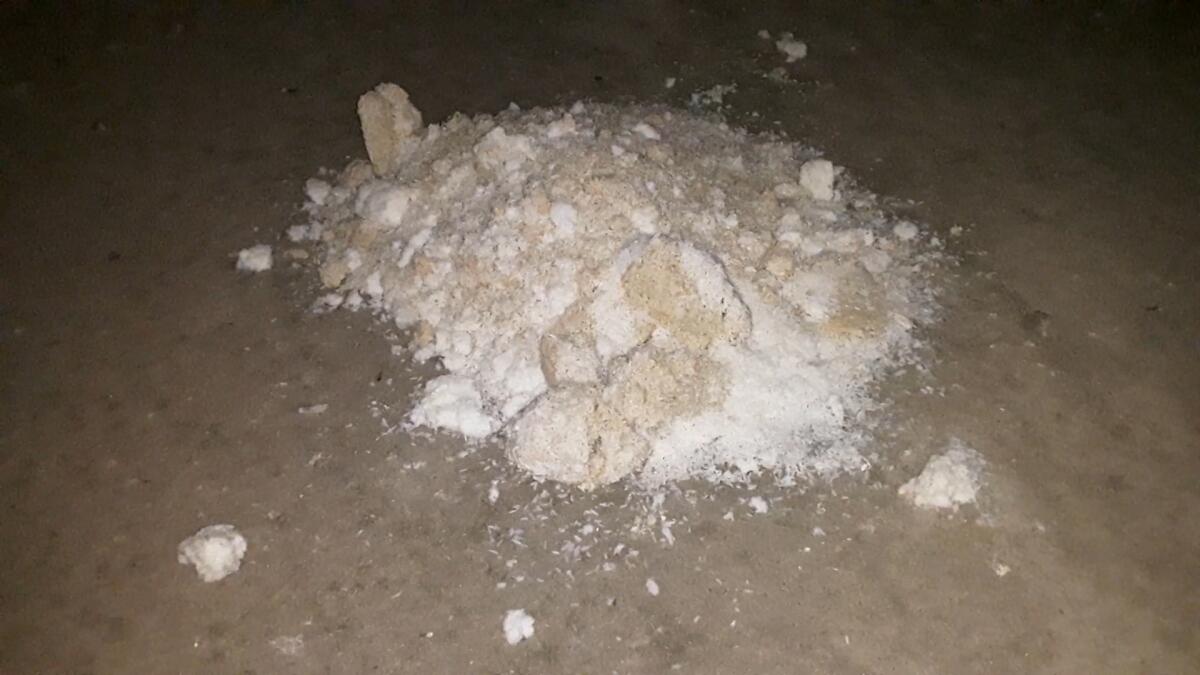
But without any concrete details, such as a description or vehicle license plate number, officials told him there wasn’t much that could be done. So, Friedland decided to drop the matter, until a visit to the park last Thursday rekindled his interest.
The Costa Mesa resident came upon another pile of bread unceremoniously dumped on the ground. While not nearly as large as what he’d seen previously, Friedland’s hackles were raised. He went on social media and posted new video along with footage from 2019.
That got people talking.
Costa Mesa resident Sandra Cotten on Sunday posted photos on Facebook showing ducks and geese pecking at a pile of assorted bread and tortilla scraps, some of which had spots of green mold. By Tuesday, another vast mound of quick and easy carbohydrates had appeared.
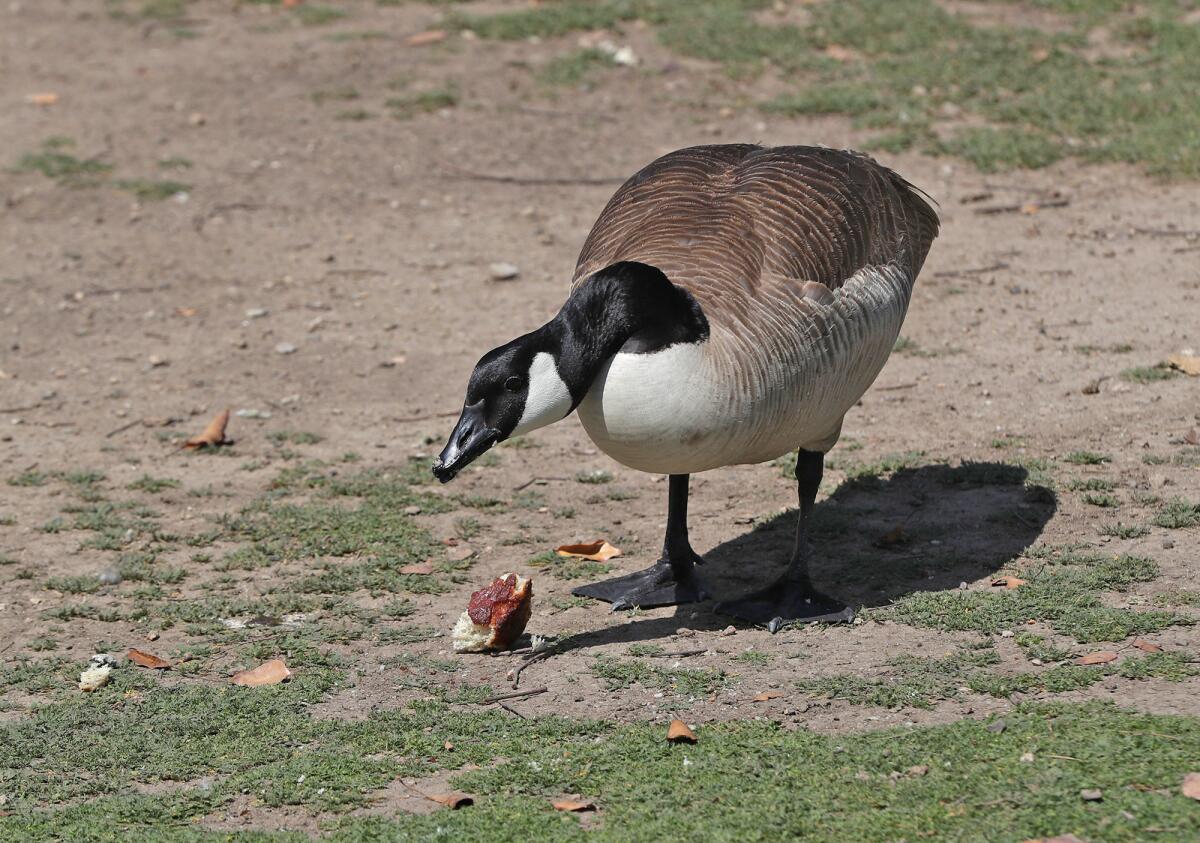
“There are all kinds of families who will feed bread. I try to tell them bread is really bad for the ducks, and some people seem not to know and will thank me,” said Cotten, a waitress who once raised mallards. “[But] this seems like someone from a restaurant with big bags of bread.”
Cotten said the deposits are just the latest in a litany of offenses against Tewinkle’s fauna. She’s seen people eat meals and dump their leftovers — containing chicken, rice or pasta — onto the ground.
Though feeding ducks and geese seems well-intentioned, the act can pose great risk to waterfowl, especially species that migrate, says Debbie McGuire, executive director of the Wetlands and Wildlife Care Center in Huntington Beach.
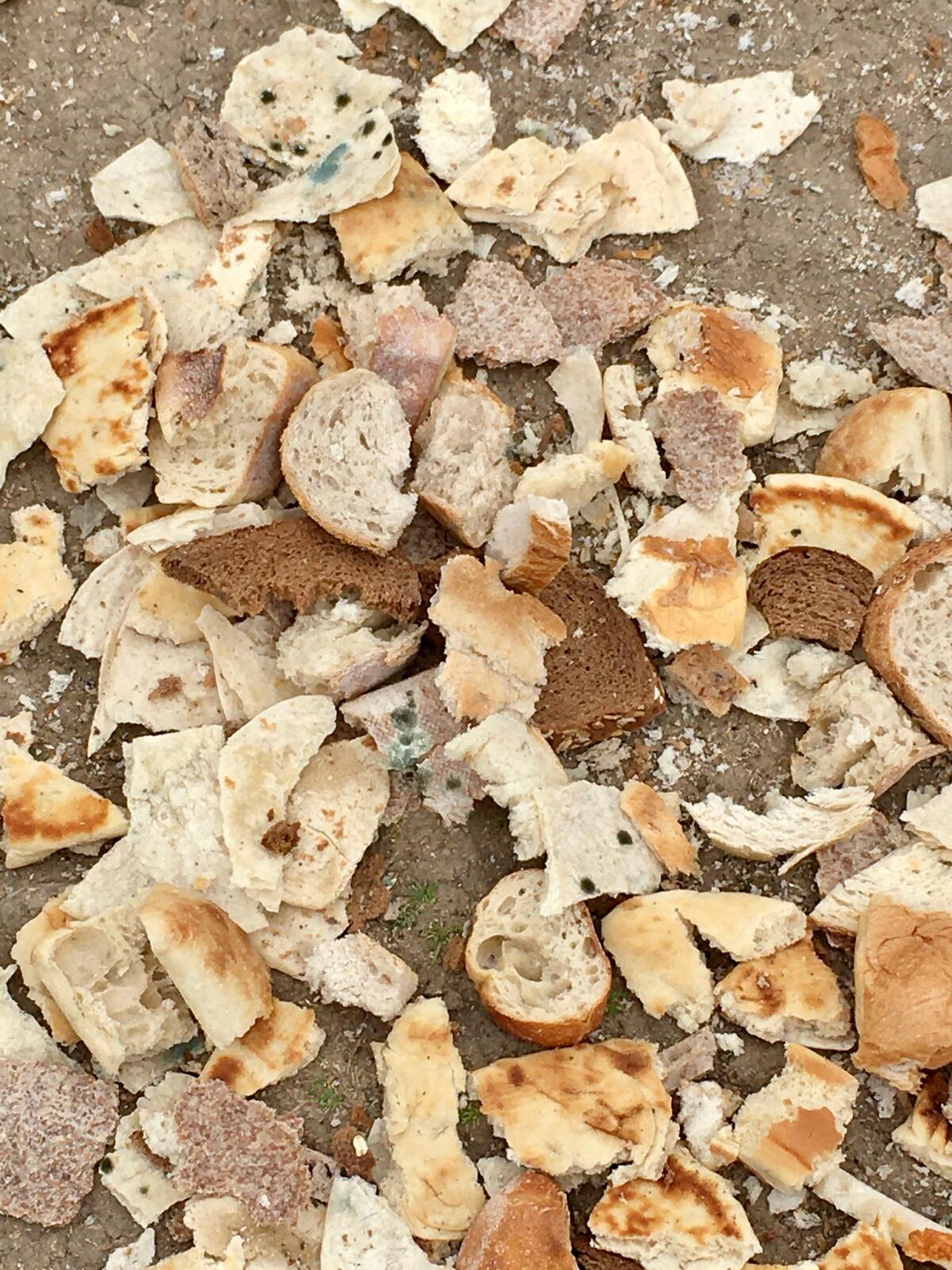
“Nobody should feed wildlife because if they become habituated to one area they’re not going wild and flying around foraging for food like they’re supposed to,” McGuire said. “It disrupts everything.”
A diet too rich in carbohydrates can alter the growth of ducks’ wings and bones. For example, “angel wing” is a condition caused by improper nutrition and abnormal levels of carbohydrates and sugar, in which wings curve outward, preventing waterfowl from natural movements like flying.
Moldy food can cause lung infections, while infusions of carbohydrates can cause birds to defecate more often, creating an environment for bacterial growth, McGuire added. Waterways can be similarly polluted by excess bread, posing risks to humans and fowl alike.
Costa Mesa Police Department spokeswoman Roxi Fyad said Tuesday the department has received at least one complaint from a resident about the situation at TeWinkle Park. However, without identifying information, it can be hard for officers to stop the unwelcome donations.
“Any information that would lead to us identifying a suspect would be most helpful,” she added.
All the latest on Orange County from Orange County.
Get our free TimesOC newsletter.
You may occasionally receive promotional content from the Daily Pilot.









